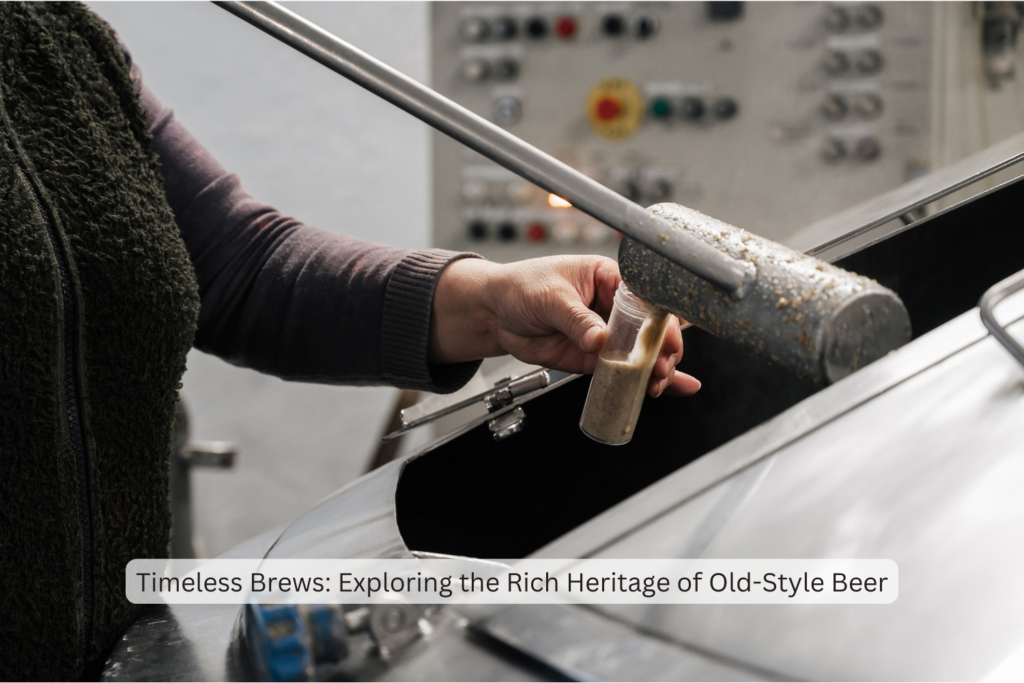Beer has been a beloved beverage for millennia, and the styles and methods of brewing have evolved significantly over time. Among the myriad of beer types available today, old style beer holds a special place for its rich heritage and traditional brewing methods. These beers not only offer a taste of history but also showcase the meticulous craftsmanship that has been passed down through generations.
Old style beers, often referred to as traditional or classic beers, are typically brewed using age-old techniques and recipes that have remained unchanged for centuries. These beers reflect the brewing heritage of various regions, each with its own unique flavors, ingredients, and brewing processes. The appeal of old style beer lies in its authenticity and the connection it provides to the past, offering drinkers a chance to experience the flavors and aromas enjoyed by their ancestors.
One of the key characteristics of old style beer is its use of traditional ingredients. Unlike modern craft beers, which often incorporate a wide range of innovative and exotic ingredients, old style beers rely on the classic quartet of water, malt, hops, and yeast. These ingredients are carefully selected and combined to create a balanced and harmonious flavor profile. The malt provides the backbone of the beer, contributing sweetness and body, while the hops add bitterness and aroma. The yeast ferments the sugars in the malt, producing alcohol and carbon dioxide, and imparting distinct flavors and aromas to the beer.
The brewing process for old style beer is typically more labor-intensive and time-consuming than modern methods. Brewers often employ traditional techniques such as open fermentation, where the beer is fermented in open vessels rather than closed tanks. This method allows for greater interaction with the environment, including exposure to wild yeast and bacteria, which can add complexity and character to the beer. Additionally, old style beers are often conditioned for longer periods, allowing the flavors to mature and develop fully.
Many old style beers are closely associated with specific regions, reflecting the local brewing traditions and ingredients. For example, German lagers such as Märzen and Dunkel are renowned for their rich malt character and clean finish. These beers are traditionally brewed in Bavaria, where the cool climate and pure water sources provide ideal conditions for lager brewing. Similarly, Belgian ales like Dubbel and Tripel are celebrated for their complex flavors and high alcohol content, achieved through the use of special brewing techniques and unique yeast strains.
The history of old style beer is deeply intertwined with the cultural and social fabric of the regions where they originated. In many European countries, brewing was historically a community endeavor, with local breweries serving as social hubs and centers of economic activity. Monasteries also played a crucial role in preserving and advancing brewing knowledge, with monks brewing beer for both sustenance and trade. Many of the classic beer styles we enjoy today, such as Trappist ales, have their roots in monastic brewing traditions.
Old style beers are not only a testament to the skill and artistry of traditional brewers but also a celebration of regional diversity and heritage. Each sip of a traditional beer offers a glimpse into the history and culture of the place where it was brewed. For beer enthusiasts, exploring old style beers is akin to embarking on a journey through time and across continents, discovering the rich tapestry of flavors and stories that have shaped the world of brewing.
Despite the rise of modern craft brewing and the proliferation of new and experimental beer styles, old style beers continue to enjoy a devoted following. Many contemporary brewers pay homage to traditional methods and recipes, producing beers that honor the past while appealing to modern palates. This resurgence of interest in old style beer is a testament to the timeless appeal of these brews and their enduring place in the world of beer.
For those looking to explore old style beer, there are numerous avenues to pursue. Visiting local breweries that specialize in traditional brewing methods can provide a firsthand experience of the craftsmanship and dedication that go into making these beers. Beer festivals and events often feature a selection of classic styles, offering an opportunity to sample a variety of old style beers from different regions. Additionally, many beer retailers and online shops carry a wide range of traditional beers, allowing enthusiasts to enjoy these brews from the comfort of their own homes.
In conclusion, old style beer represents a vital link to our brewing heritage, showcasing the timeless techniques and flavors that have stood the test of time. These beers offer a unique and authentic experience, allowing us to connect with the past and appreciate the rich history of brewing. Whether enjoyed in a rustic pub, at a lively festival, or at home with friends, old style beer continues to captivate and inspire, reminding us of the enduring legacy of traditional brewing.
FAQs:
1. What defines an old style beer?
Old style beers are defined by their use of traditional brewing techniques and ingredients that have been passed down through generations. They typically rely on the classic quartet of water, malt, hops, and yeast, and are brewed using methods that have remained largely unchanged for centuries, such as open fermentation and extended conditioning periods.
2. How do old style beers differ from modern craft beers?
While modern craft beers often experiment with innovative ingredients and brewing techniques, old style beers focus on maintaining historical recipes and methods. This results in flavors and aromas that are characteristic of specific regions and time periods, offering a taste of brewing heritage that contrasts with the creativity and diversity of the contemporary craft beer scene.
3. What are some examples of old style beers?
Examples of old style beers include German lagers like Märzen and Dunkel, Belgian ales such as Dubbel and Tripel, and English styles like Porter and Bitter. Each of these beers reflects the traditional brewing practices and regional ingredients of their respective origins, providing a unique and authentic drinking experience.
4. Why are traditional brewing methods important for old style beers?
Traditional brewing methods are crucial for old style beers because they preserve the historical and cultural significance of these brews. Techniques like open fermentation and long conditioning periods contribute to the unique flavors and complexities that define old style beers. By adhering to these methods, brewers honor the craftsmanship and heritage of their predecessors.
5. Where can I find old style beers to try?
Old style beers can be found at breweries that specialize in traditional brewing methods, beer festivals that feature classic styles, and specialty beer retailers both in-store and online. Exploring these sources can provide an opportunity to sample a variety of old style beers and appreciate the rich history and flavors they offer.

